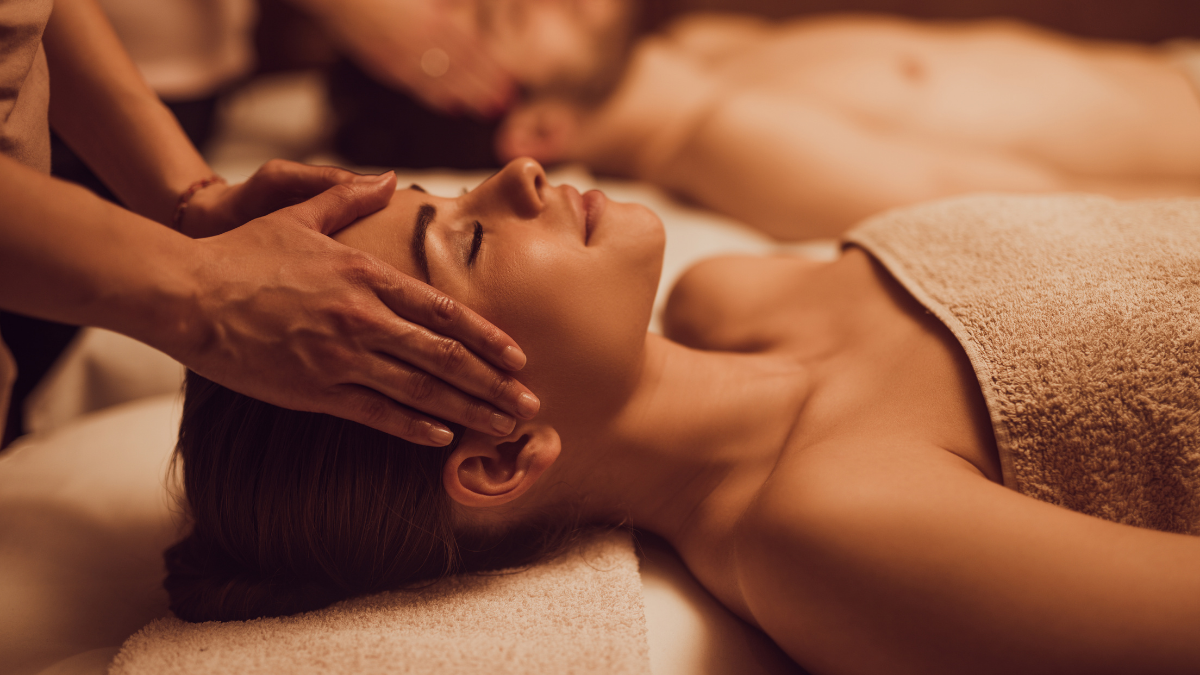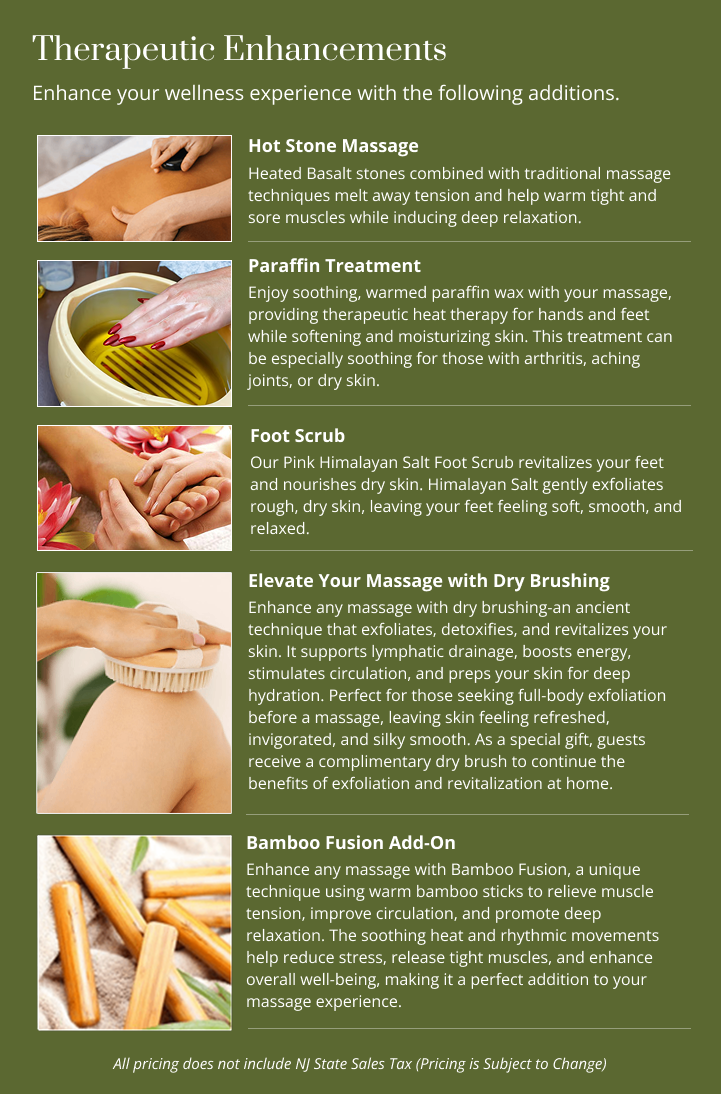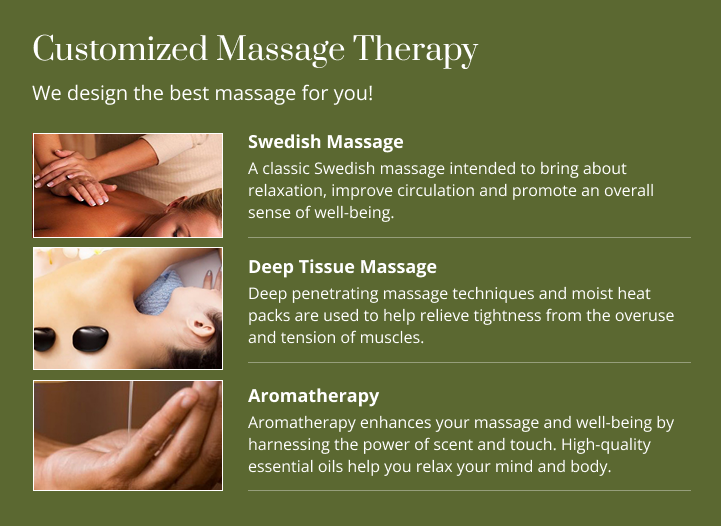
Massage therapy improves circulation, reduces tension, and boosts relaxation, helping your body stay cool and manage summer stress.
As temperatures rise and the days get longer, summer heat can be unyielding, leaving us feeling sluggish, cranky, and even sick. While we usually turn to air conditioning and cold drinks for relief, massage therapy is a lesser-known yet effective way to deal with the summer heat. Massage is not just a luxury; it provides various physical benefits that help your body manage temperature better during the warm months.
- Massage helps with temperature control by improving circulation
- A well-circulated bloodstream pulls heat from the core and sends it to the limbs, where it can be released
- Massage reduces muscle tension that can block blood flow and lymphatic drainage
- Massage therapy improves your overall resilience and immune function
- Activates the parasympathetic nervous system, creating a state of deep relaxation
- Lymphatic drainage massage helps reduce swelling and create a sense of lightness and internal cooling
- Using cool stones or essential oils like peppermint or eucalyptus can provide an immediate cooling effect
Enhanced Circulation for Natural Cooling
One of the main ways massage helps with temperature control is by improving circulation. When blood flows more efficiently, it can better spread heat throughout your body, preventing it from building up in certain areas. Think of it as a complex internal cooling system. A well-circulated bloodstream works like a radiator, pulling heat away from the core and sending it to the limbs, where it can be released. Techniques like Swedish massage, which uses long strokes and kneading, are especially good at boosting blood flow and creating a feeling of lightness and coolness.
In addition, massage reduces muscle tension. In hot weather, our bodies may tighten up without us realizing it, either as a defense response or due to dehydration and imbalances in electrolytes. This tension can block blood flow and lymphatic drainage, trapping heat in the tissues. A skilled massage therapist can find and relieve these tension points, allowing for better movement and circulation, which helps in releasing heat. This relief also brings a deeper sense of relaxation, essential for managing heat stress.
Did you know?
Regular massage therapy can also help your body adjust to temperature changes by improving your overall resilience and immune function. A healthy body is better prepared to handle environmental stressors, like extreme heat.
Soothing the Mind for Thermal Balance
Besides the physical benefits, massage provides significant mental relief during hot weather. The intensity of high temperatures can lead to more stress and anxiety. Massage therapy, by activating the parasympathetic nervous system, creates a state of deep relaxation. This calmness can lower your heart rate and blood pressure, easing the strain that heat puts on you. When you relax, your body operates more effectively, including its temperature regulation. The mental clarity and reduced stress that come after a massage can make even the hottest days seem more bearable.
Additionally, some massage techniques work particularly well for cooling down in summer. Lymphatic drainage massage, for example, targets the lymphatic system, which is crucial for removing waste and excess fluid from the body. In hot weather, fluid retention can make you feel puffy and uncomfortable. By promoting lymphatic flow, this gentle massage can help reduce swelling and create a sense of lightness and internal cooling. Using cool stones or essential oils like peppermint or eucalyptus during a massage can also provide an immediate cooling effect and improve the overall refreshing experience.
Don’t let the summer heat overwhelm you. Use the benefits of massage therapy to support your body’s natural cooling abilities, lower stress, and enhance your overall well-being. See how a professional massage can refresh your summer routine.
Call Essential Massage Therapy today at (973) 729-2400 to book your appointment and stay cool this summer!
Frequently Asked Questions:
Can massage dehydrate me in hot weather?
No, massage itself does not dehydrate you. In fact, by improving circulation, it can help your body utilize fluids more effectively. However, it’s always crucial to stay well-hydrated before and after your massage, especially in hot weather. Drink plenty of water!
How often should I get a massage to help with heat?
The frequency depends on individual needs and your tolerance to heat. For general well-being and to aid in temperature regulation, a monthly massage can be very beneficial. During periods of extreme heat or if you experience significant heat-related discomfort, more frequent sessions might be helpful. Consult with your therapist to determine the best schedule for you.




